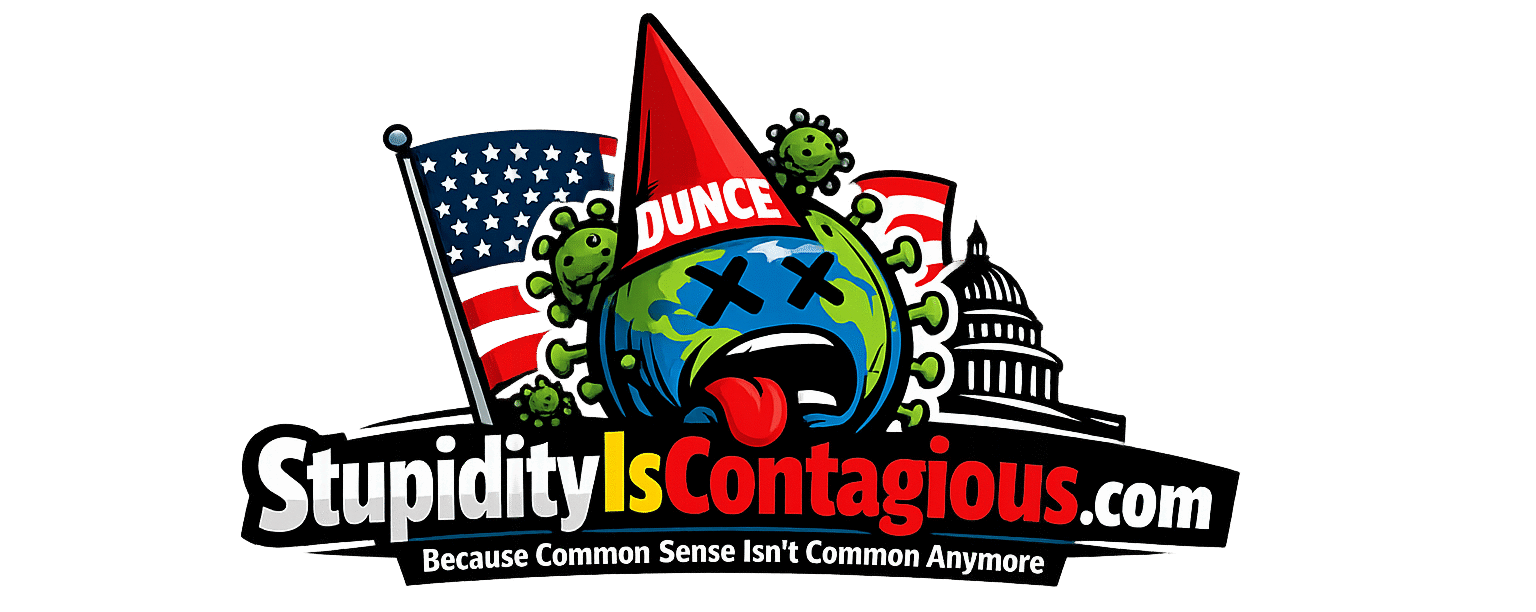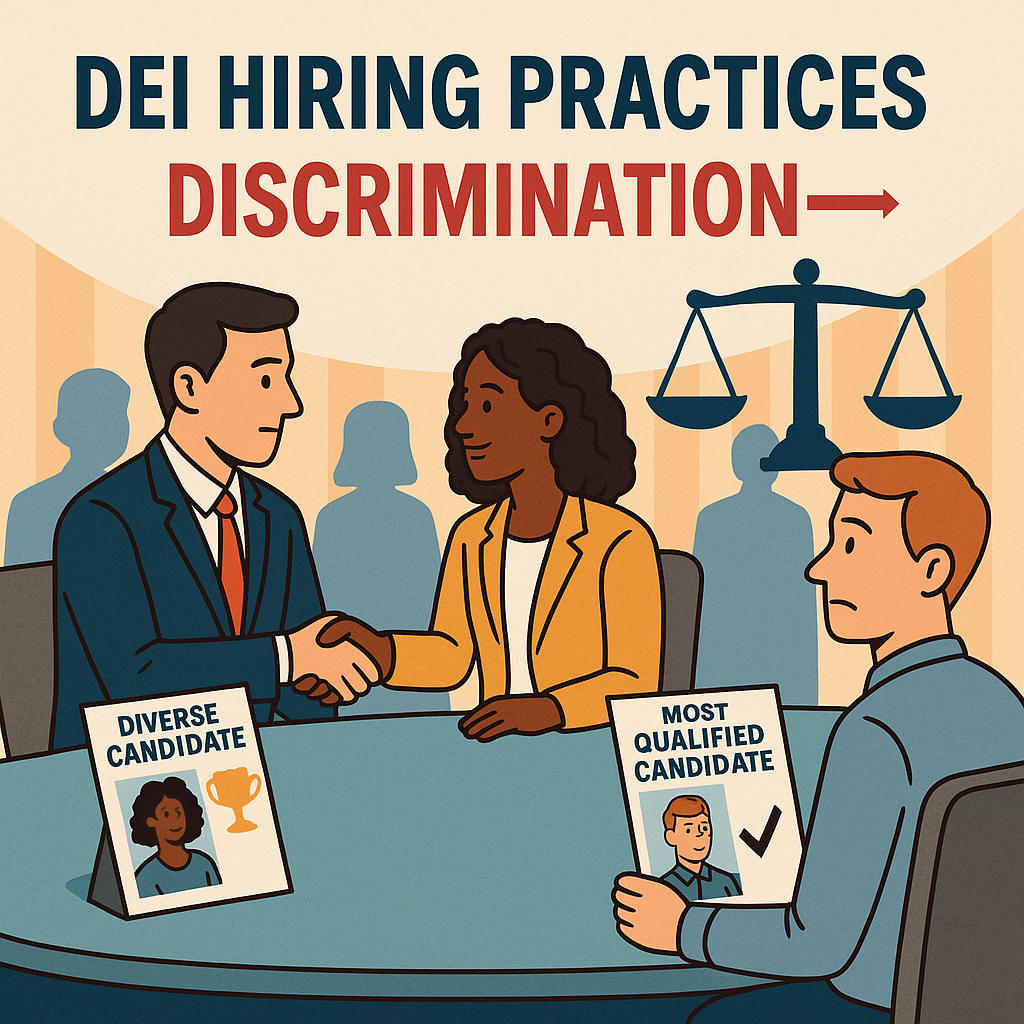The Great Irony of DEI: When “Equality” Starts to Look a Lot Like Discrimination
There was a time when job applications were all about qualifications. You know, those pesky little things like experience, skill, and whether you could actually do the job. Then came the age of DEI hiring initiatives are discriminatory where “diversity, equity, and inclusion” replaced “competence, effort, and talent” as the holy trinity of corporate hiring.
Fast-forward to 2025, and the corporate world is suddenly realizing something shocking. You can’t fix discrimination with more discrimination. Who could have seen that coming? Apparently, the people who kept pointing out that DEI hiring initiatives are discriminatory were onto something.
The Road to Equity Was Paved With Identity Checkboxes
DEI hiring initiatives are discriminatory, or so the argument goes, because they shift the focus from “Can this person do the job?” to “Does this person check our desired demographic boxes?” The idea: we’ll make up for past imbalances by prioritizing identity. Sounds noble. But in practice? Let’s just say the scoreboard got weird.
The result? A new kind of workplace tension where managers whispered things like: “She’s not the most qualified, but she’ll look great in the annual diversity report.” Which stinks because every time someone says “look good in the report,” merit walks out the back door. That’s why critics keep hammering the same point: DEI hiring initiatives are discriminatory no matter how nice they sound on a PowerPoint slide.
The Great Corporate Backpedal Begins
Now, one by one, big corporations are quietly ditching DEI programs faster than a CEO deletes an old tweet — mostly because DEI hiring initiatives are discriminatory in practice, and lawyers don’t find discrimination as funny as social media does.
Google was among the first. In February 2025, the company publicly acknowledged it would no longer maintain aspirational hiring goals for under-represented groups. The shift is widely viewed as a tacit admission that DEI hiring initiatives are discriminatory or at least unsustainable.
Salesforce, Inc. followed suit, removing explicit diversity hiring targets and editing out “diversity” from its core values — another quiet nod that DEI hiring initiatives are discriminatory once you actually read the legal fine print.
Barclays PLC jumped on the bandwagon in April 2025, scrapping gender and ethnicity representation targets for its U.S. business — once again signaling that DEI hiring initiatives are discriminatory and not worth the PR fallout.
Even KPMG in America decided it was safer to just delete entire DEI sections from its website. Because when your lawyers and your marketing team agree for once, you listen.
“We’re Not Abandoning DEI — We’re Just Renaming It”
To save face, some companies have simply rebranded their diversity departments with friendlier, less risky names: “Culture & Belonging,” “Inclusive Talent,” or “People First.” Because if you don’t call it “DEI,” maybe you can deny that DEI hiring initiatives are discriminatory even while quietly keeping the same ideas under a new label.
The new message? We still care about inclusion nut we’re just not going to measure it, discuss it, or risk a lawsuit over it.
When Inclusion Becomes Exclusion
Let’s be brutally honest: the moment you start prioritizing race, gender, or orientation in hiring, you’ve officially entered “some discrimination required” territory. That’s the whole point behind the backlash. DEI hiring initiatives are discriminatory, plain and simple.
This doesn’t mean diversity itself is bad. It means when the goal is to hit demographic targets instead of hiring the most qualified candidate, you’ve traded fairness for optics and when fairness dies, trust dies right along with it.
The DEI Domino Effect
Here’s a quick recap of the corporate diversity retreat, each headline basically confirming that DEI hiring initiatives are discriminatory:
- Google – Ended diversity hiring targets.
- Salesforce – Removed DEI hiring goals and scrubbed “diversity” from company values.
- Barclays – Abandoned gender/ethnicity targets in U.S. operations.
- KPMG – Quietly deleted DEI initiatives from its U.S. website.
Across the board, companies have realized that DEI hiring initiatives are discriminatory, politically divisive, and legally risky. When even HR starts quoting the Civil Rights Act, you know the mood has shifted.
Meritocracy: The Sequel Nobody Expected
The irony? The same companies that once bragged about “representation goals” are now preaching the revolutionary concept of hiring the best person for the job. After years of corporate virtue signaling, America’s biggest employers are rediscovering merit like archaeologists uncovering a lost civilization.
One HR director reportedly said, “We’ve decided to focus on qualifications again,” while quietly thinking, thank God someone finally admitted DEI hiring initiatives are discriminatory.
Final Thought: Equality ≠ Quotas
Diversity and equality are noble goals when they’re organic, not engineered. You can’t create fairness by replacing one bias with another. That’s not progress; that’s just swapping who gets discriminated against this decade.
The truth is, DEI hiring initiatives are discriminatory when they substitute group identity for individual merit. That’s why companies are retreating, rebranding, and rewriting history faster than you can say “inclusive hiring.”
Sure, they’ll still call it something fancy like “Inclusive Merit-Based Synergy,” but under the buzzwords, there’s a clear lesson that sometimes the path to equality starts by admitting that DEI hiring initiatives are discriminatory.

